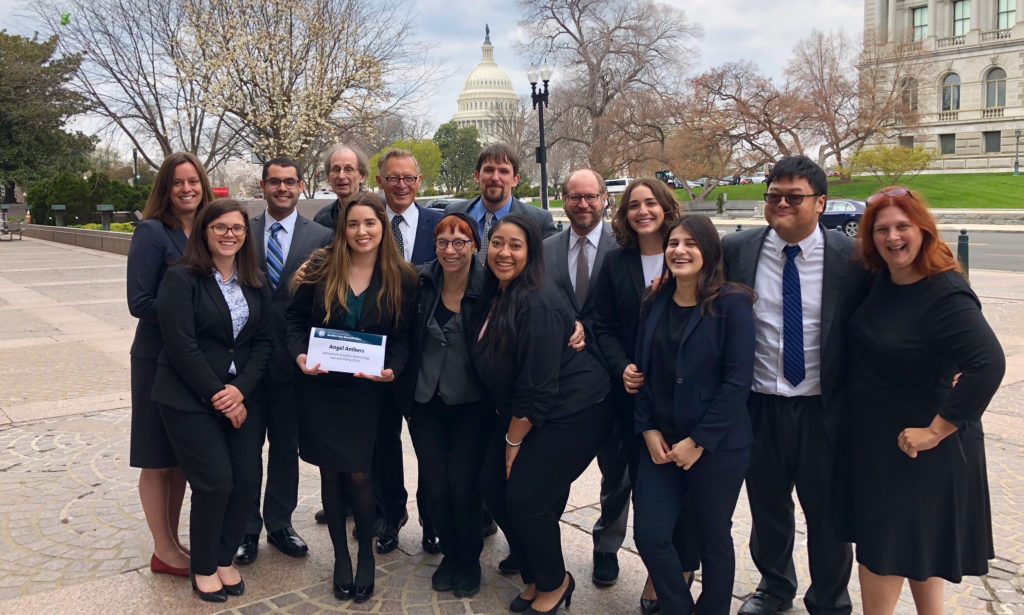
A key policy issue at Authors Alliance is our support for authors’ right to make fair use in the digital age. In May 2015, we participated in the U.S. Copyright Office’s sixth triennial rulemaking, and testified in support of exemptions to Section 1201 of the DMCA that would protect the fair use rights of e-book authors, allowing them to bypass the encryption on DVDs, Blu-ray, and other media in order to use film clips in multimedia e-books.
Now, for the seventh triennial rulemaking session in 2018, Authors Alliance has returned to Washington, DC to advocate for an expanded exemption that would allow for the use of film clips in e-books for purposes other than film analysis, and in fictional works as well as nonfiction. The exemption, which is explained in greater detail here, would expand on the more limited exemption that the Copyright Office has already recommended be renewed. Yesterday, Executive Director Brianna Schofield testified in support of this modified exemption in a hearing at the Library of Congress alongside a team of authors, filmmakers, and scholars, as well as representatives from the Intellectual Property, Arts, and Technology Clinic at the UC Irvine School of Law and the Samuelson-Glushko Technology Law & Policy Clinic at University of Colorado School of Law.
We were very glad to have the opportunity to answer the Office’s questions at the hearing and to provide additional information demonstrating why these exemptions are important to authors. Authors Alliance provided examples showing the importance of modifying the exemption to no longer require that e-books taking advantage of the exemption “offer film analysis.” Under the current exemption, the authors who want to incorporate film clips in their e-books at best have their projects clouded with uncertainty as to whether the current exemption applies to these uses, and at worst they abandon these projects after concluding that exceptions won’t apply.
We hope that our efforts in this rulemaking will help the Copyright Office recognize that authors should be able to make responsible fair use of film clips in fields beyond film analysis and that these uses should be expanded to include fictional as well as nonfiction e-books.
We expect to hear the results of the hearing later this year, when the Librarian of Congress adopts a final rule for the seventh triennial rulemaking session. As always, we will provide timely updates on the status of these exemptions and our other policy and advocacy issues.
Discover more from Authors Alliance
Subscribe to get the latest posts sent to your email.
